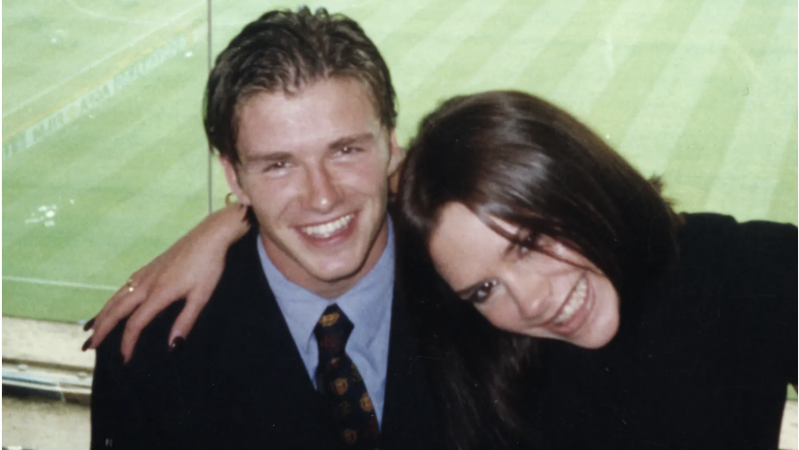
What Netflix's Beckham Tells Us About David and Victoria's Relationship
-
Netflix docuseries Beckham charts the ups and downs of legendary England footballer David Beckham's career
-
Psychotherapist Camilla Nicholls takes a look at what the show reveals about David and Victoria's marriage
Beckham, the pacey four-part docuseries trending on Netflix, has something for everyone, but especially therapists interested in relationships. As the name of the series suggests, the focus is on the legendary England footballer, David Beckham, but the programme would lack the general appeal its obviously gained if it did not look at the dominant relationships in Beckham’s life.
Some, particularly those with his father and his longstanding manager at Manchester United Sir Alex Ferguson, are complex and even troubling with both men firmly in the slow to praise, quick to admonish mould. Others with his mother and his various teammates, especially all round garrulously good guy Gary Neville, are genuinely touching and illuminating. However, it’s the couple dynamic at the heart of the film, the relationship with his wife, Victoria which dominates and holds our attention for all four episodes.
Posh and Becks as they were known sometimes affectionately, sometimes derisively, in the media are presented, convincingly, as a loving couple who met when they were both already internationally recognised talents and brands. Neville tells us how in the early stages of their romance Beckham would drive for hours just to spend twenty minutes with Victoria.
Beckham clearly finds Victoria sexually attractive and, perhaps equally importantly, seems to find a comfort in being around her, on the phone to her, joining her pop group family, The Spice Girls, briefly on tour. When the film revisits their extravaganza of a wedding at ‘Beckingham Palace’ Beckham laughs at his choice of a purple suit, “I must have just gone along with what Victoria wanted”.
Victoria, is referred throughout the film as once having been Posh Spice or ‘a Spice Girl’, but never, puzzlingly, as a successful businesswoman with her own fashion brand. Or perhaps not so mysterious. Maybe the filmmakers have acted into a major part of the dynamic between the couple. Although their marriage was the marriage of two internationally recognised brands, the series seems to suggest there was only really room for one to dominate.
Despite the often prickly public persona Victoria presented, it seems that she provided a soft foil to the harshness of the ‘fathers’ and the often brutal rigours of competitive sport. David and Victoria both attracted vile and vicious attention in the stands and in the media (much of which makes hard and shaming viewing) and despite these, as the programmes progress, it seems more and more likely that her willingness to sublimate many of her own needs (for example to have stability for her and their family and not be constantly uprooting to live wherever Beckham was playing – Spain, USA, France, Italy) was what kept their relationship going.
In the final episode Victoria states, with growing certainty, that making the docuseries, reviewing some of the best and toughest times in her relationship with David, has been like a form of therapy. The film ends with Victoria and David dancing, almost perfectly in step, to Kenny Rogers as their children surround them. A lovely scene. Perhaps one that would have an even stronger beat if the Beckham’s took themselves to real couples therapy and continued to explore the parts of their lives which seemed to take place between episodes.
Camilla Nicholls is a verified Welldoing psychotherapist in North London
Further reading
What is intimacy anyway?
What would Freud think of cancel culture?
5 myths and misconceptions about couples therapy
Is staying in love an unrealistic relationship goal?
Therapy helped me recover after an affair










